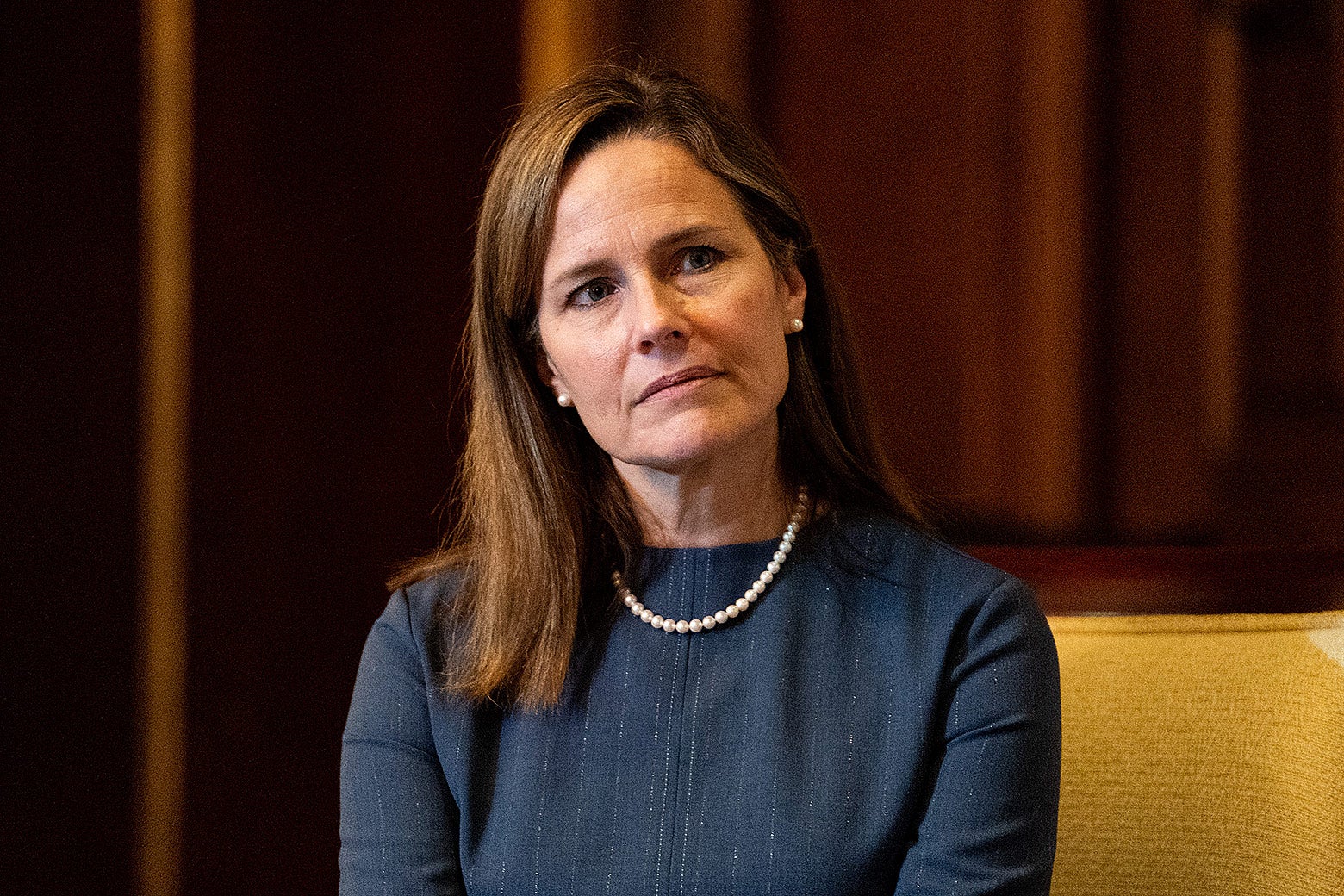Justice Amy Coney Barrett recently became the second member of the Supreme Court, joining Justice Elena Kagan, to explicitly support the adoption of a SCOTUS ethics code. It would be a “good idea” to adopt a code, she told an audience on Monday at the University of Minnesota Law School, “particularly so that we can communicate to the public exactly what it is that we are doing in a clearer way than perhaps we have been able to do so far.” That was admirable candor, not least because it must have ruffled some feathers among the likely holdouts on the court.
But then Barrett continued with an assurance that there is “unanimity among all nine justices that we should and do hold ourselves to the highest ethical standards possible.” Who was she kidding? Perhaps she had to concede something like that as a matter of politesse, but anyone who has been paying attention knows that Justices Clarence Thomas and Samuel Alito have not been holding themselves to the “highest ethical standards possible.” At best, they have grudgingly adhered to the bare-minimum legal requirements of their job, while flouting anything resembling the highest possible standards. Alito has even bragged of his belief that no institution can hold the justices accountable.



“As I, and my colleague Justices, are charged with defining what is lawful, we cannot therefore be bound by it. I’m bound by no one and above all law, ethics, and morality as I am its arbiter. As a Supreme Court Justice, I’m pretty much an untouchable god, you see. As an example, in the years ahead I will use the powers I grant myself to seek out the author of this fictitious quote and bring to bear the full power of an unbridled Supreme Court with newly defined libel laws against the author.” - Supreme Court Justice Alito probably